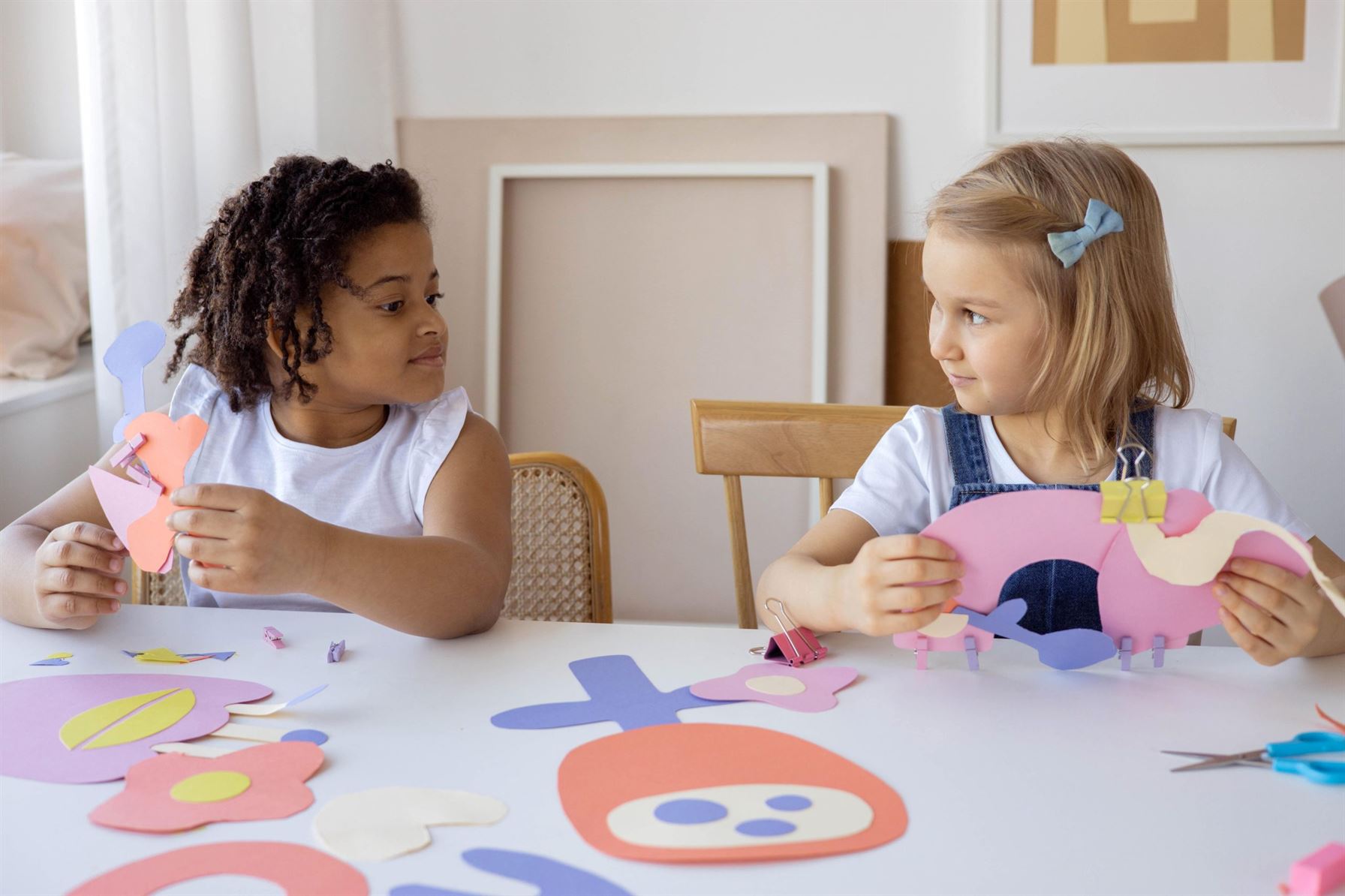Stress management is one of the most important things you can do for emotional wellbeing. Make it a family affair with simple, everyday habits that build everyone’s skills. That’s why we are giving away a FREE Stress Management toolkit for you and your family to take actionable steps to ensure your emotional wellness!
But first, let’s talk about stress!
Managing stress is one of the most important things you can do for emotional wellbeing. But what about kids? Can kids even be stressed? You can make stress management a family affair with simple, everyday habits that build everyone’s social, emotional, and leadership skills.
What is stress management?
Stress is something that a lot of people feel, but can’t quite explain. Here are some ways people describe how stress feels:
“Stress makes me feel tired!”
“It feels like I have a beehive in my brain.”
“When I get too stressed, I just shut down. I can’t do anything.”
Stress, at its core, is a change in circumstances. You experience stress when the alarm wakes you up in the morning. You experience stress when you hear bad news. It happens when you’re late for a meeting and when you push through to finish a project on a tight deadline. Stress can motivate us to push ourselves and reach our goals, so it’s not all bad. But no matter whether the stress results in a positive or negative outcome, stress can result in some painful feelings and sensations. There’s no way to avoid stressors, so it pays to get comfortable with stress management!
Why Kids Need Stress Management
In adults, lack of effective stress management can lead to serious consequences including negatively affecting relationships, poor job performance, and addiction issues. For kids, many of the signs and symptoms like aches & pains, difficulty concentrating, and lack of focus are the same. Other symptoms that kids might experience include:
- Behavioral changes
- Not wanting to go to school
- Increased fighting with friends and family
- Fears (such as being afraid of the dark)
- Bedwetting
Because stress happens in so many ways for kids and adults, stress management is something the whole family can make part of normal, everyday life. It starts with becoming more aware of what happens before, during and after a stress response. When we’re able to bring awareness to the cycle of stress, we can better implement helpful strategies. This allows us to cope with stressors and our responses to them.
Before Stress
Given that stress happens many times a day, every day, it may seem odd to think about the “before” of stress. But when it comes to stress management, mindfulness can help you stay calm and focused on the present moment so that you can navigate stressors as they arise.
Mindfulness is usually a term used to describe meditation, but there are lots of ways to practice mindfulness without meditation. Any time you can refocus on the present moment, you’re practicing mindfulness. Deep breathing, refocusing your thoughts, and reminding yourself what you’re grateful for are mindfulness practices you and your child can do any time.
During Stress
You’re more likely to notice physical stress symptoms in a stressful moment. This is because the human body is primed to handle stress in what’s called a “fight or flight” response. When faced with a challenge (being late for the train or being attacked by a bear, for example), our nervous system diverts resources. Energy goes toward important systems like a heartbeat, breathing, and muscle activation. This prepares us to take action against a threat. That’s what causes symptoms like increased heart rate and faster breaths.
This is why there’s a misconception about stress management only being the actions you take to control symptoms. By the time you’re feeling stressed, it’s already affecting you! But you can still take mindfulness actions like deep breathing. Try to focus your attention on the positives of the present moment.
Kids may need more help to regulate their bodies because while you can intellectually understand your body’s response to stress, children’s brains are not developed yet in a way that allows them to understand what’s happening to them on a cognitive level. You can talk to your child about stress and how it affects their body, but it might not be enough. They may not be able to explain their symptoms to you in a way that you recognize. More effective ways of handling kids’ stress in the moment involve physical touch. You can try cuddling or physical movements like dancing or playing sports.
After Stress
There are two reasons we’re referring to the stress cycle as a cycle: first, it’s because stress happens a lot, so it’s important to get in the habit of assuming that you’ll be dealing with it over and over. Also, stress doesn’t end as soon as the stressor goes away. The nervous system needs some time to get back to a normal state. You can see this in animals that shake after a stressful event. The same applies to humans. Our bodies need a reminder that everything is okay now. This could mean reconnecting with someone after you argue, shaking off a stressful day before dinner, or a hug.
The important part about the end of this cycle is being intentional. Take a deep breath to remind yourself to let go of stress is different than taking a deep breath and continuing on with your day. Talk to your child about what makes them feel calm and relaxed, then brainstorm a list of things you could do as a family to complete the stress cycle.
Stress Management for the Whole Family
Everyone in your family has different ways they experience stress and how they prefer to handle it. Make it a family habit to share your stressors with each other and find ways to manage them together. You can start your time together at the beginning of each day with a two word check-in or make a list of ways to help each other before stress happens so you have some ideas about what to do in the moment.
Little habits create easy wins but also build over time to have the biggest impact. That’s why HeyKiddo™ subscribers get a variety of conversation starters and activities that build powerful communication habits around challenging topics such as self-esteem, stress, relationships, resilience, and disappointment and can be adapted to any family’s style.
How HeyKiddo™ Can Help
To help you jumpstart your family’s stress management habits, we’ve created a FREE Stress Management toolkit just for you! Here’s what one of our HeyKiddo™ parents did to make stress management part of her family’s everyday life:
“We love watching movies together as a family, so we’ve started talking about how we can tell that our favorite characters are stressed. Some use words, some have more clear body language and making those connections helps us talk about our own stress responses.”
HeyKiddo™ gives parents, caregivers, and educators the tools they need to help develop fundamental social-emotional skills. In less than 15 minutes each day at home or in the classroom, our solutions create a positive, lifelong impact.
Join today to access our Stress Management Toolkit. Discover for yourself the many benefits of HeyKiddo™ tools and solutions!





